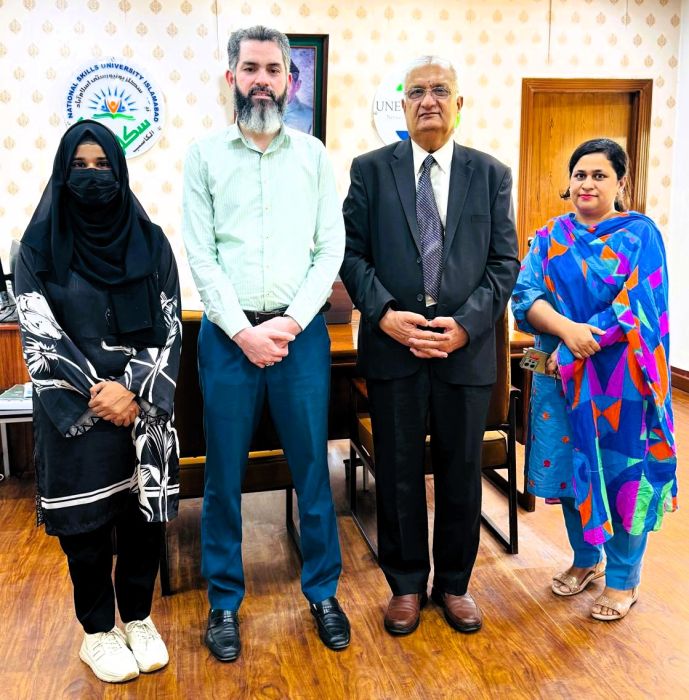NSU Professor Participates in Workshop on Reskilling the Public-sector Workforce held in Jakarta Indonesia
Posted 1 year ago
With the rapid advancement of technology, the global workforce faces an urgent and immediate need for reskilling to adapt to the evolving job markets. Realizing this issue, Dr. Irfan Ahmad Gondal, Chairperson of the Department of Mechanical Engineering Technology from Pakistan National Skills University Islamabad, participated in a workshop sponsored by the Ministry of Manpower of the Republic of Indonesia during 17 to 20 September 2024, . This program, funded by the Asian Productivity Organization (APO), for "Workshop on Reskilling the Public-sector Workforce," is a crucial and timely step in preparing the region's workforce for the challenges of digitization.
Established in 1961, the APO has played a significant role in supporting productivity improvement in various sectors through collaborations in the Asia Pacific region. Comprising 21 members, including Pakistan, Japan, Indonesia, and India, the APO is dedicated to bridging the region's socioeconomic divide, including gender differences. This commitment is at the heart of programs like capacity development and flexible working environments across the public and private sectors, offering hope and reassurance for a more equitable future.
The Vice Chancellor of National Skills University Islamabad, Prof. Dr. Muhammad Mukhtar, remarked that such trainings have great significance, particularly "The technologies in the digital sphere are changing faster, and so our workforce cannot afford the luxury of being static. Dr. Gondal's participation reflects an important milestone in ensuring that National Skills University Islamabad in Pakistan is aligning its educational programs with contemporary workplaces."
The emergence of Artificial intelligence, cloud computing, and other modern technologies have revolutionized industries by providing new jobs and making some obsolete. This rapid transformation has, however, resulted in rather dire consequences in terms of skill shortages, with the most affected being the public domains that value operational efficiency and continuity.
Dr. Gondal emphasized the invaluable lessons learned while looking to the future directions of the National Skills University. He described his participation in this program as very fruitful. He also noted that, like Pakistan, other regional partners of the APO are currently struggling with the issue of a skilled workforce that can keep up with the requirements of the increasingly globalized economy.
According to the Vice Chancellor of National Skills University Islamabad, the increasing urge to digitally transform organizations necessitates initiatives to reskill employees. A partnership between the public/private sector educational institutions and employers is crucial, where both sides collaborate to provide various career options. Reskilling goes beyond technical training and development, and therefore, the focus on enhancing communication, problem-solving, and other adaptable strategies is reassuring in equipping the workforce to face changing paradigms.
No doubt, reskilling poses several challenges, but with the investment of time into constant education and capacity building, nations like Pakistan can cultivate a workforce that is not only equipped for current challenges but also able to adapt to future job market demands. Experts worldwide believe that "We have an obligation to look into the future job markets right now." Now is also the time to revise our university curricula, and the activities undertaken by the APO are catalysts for devising a better and more efficient Asia-Pacific region.





